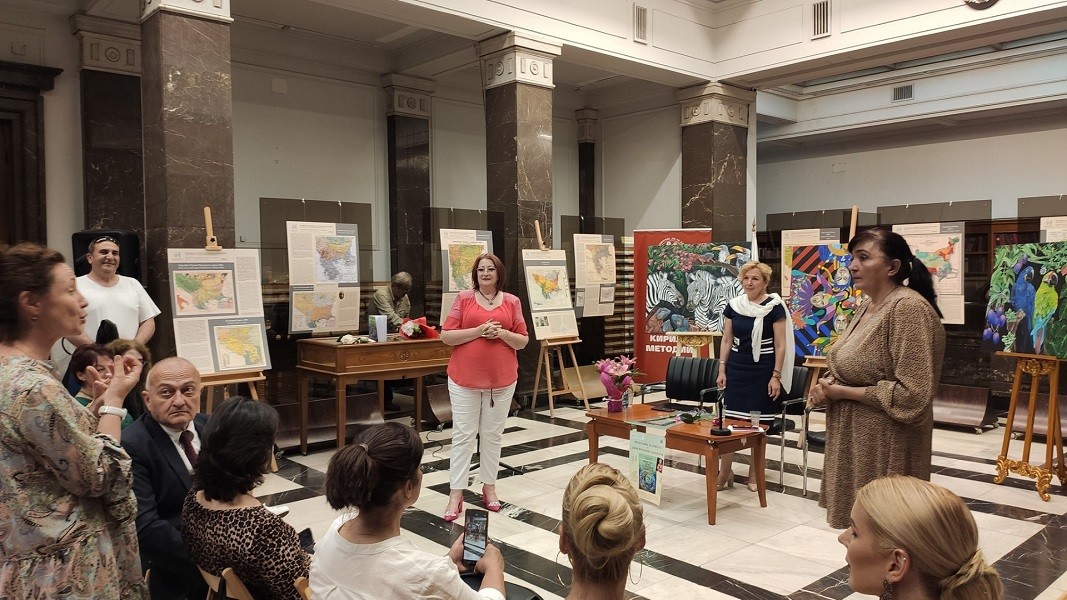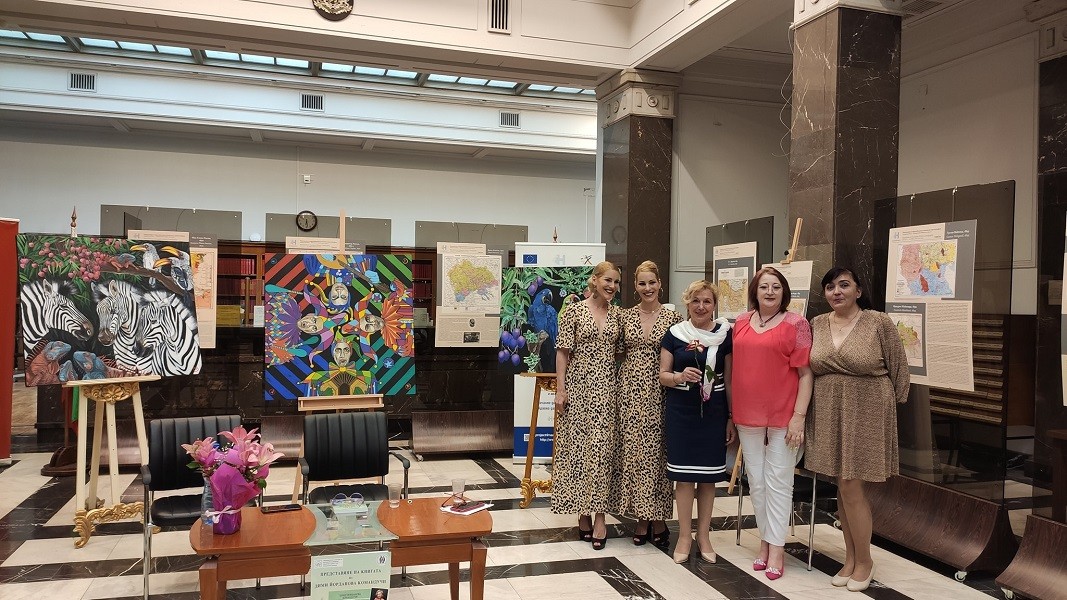Our voice is our own ally on in achieving our personal goals. It is our emotional DNA, unique as the pupil of our eye, explains Dimitrinka Jordanova-Comanducci, the first voice coach in Bulgaria. She told Radio Bulgaria about the colours of emotions and how mastering vocal emotions helps children growing up in a bilingual environment to communicate better.
Students from the Asen and Ilija Peikov Sunday School in Rome inspire psychologist Dimi Comanducci for research that supports the personal development of children and adults: "I was invited as a psychologist to coach at the Bulgarian school in 2015 by its founder Veneta Nenkova. My task was to teach a class once a week with children aged 6 to 18 to help them start expressing themselves better, as some of them had their own issues," the psychologist recalls. - The children are extremely spontaneous and I found that a 6-year-old brings out a whole range of emotions when she/he speaks. With the help of many activities, such as games, music, songs and a puppet show we went through a school year with them. This is how my DIYO method was born at the end of 2016, a method for transforming and analyzing vocal emotions in bilingual speakers."
The technique developed by Dimi Comanducci helps people to manage their emotional state and modify it when they have an important meeting, speech or other public appearance. Since we always exchange emotions when we communicate, it is important to break them down into positive and negative ones, she explains:
"If joy, trust, confidence, enthusiasm and curiosity are the positive emotions, and anger and sadness are the negative, I give each one a colour - explains the vocal coach - yellow for joy, green for confidence, blue for security and red for enthusiasm. There is another voice, which I call "orange" - the voice of curiosity. For negative emotions, black is for the voice of anger and grey is for sadness and melancholy. But the truth is that we communicate most often with our inner voice, so I gave it the color white. The voice has its own means of expression, which I called the "alphabet of the voice." It includes five elements - volume, tone, tempo, rhythm and smile. When we blend them differently, we create different vocal emotions."
Regardless of whether she is working with young children or with adults, Ms. Comanducci always tells them, "Listen to your heart when talking to someone, don't listen to your head." The method she developed helps her work with her clients in business, commerce, and politics.
She has been working in Italy for two decades now. Life led her there after a trip to Cross Forest - one of Bulgaria's holy sites, called also the "Rhodope Holy Forest". During that trip Dimi became convinced that miracles happen there and dreams do come true. She wished for herself to go and live in a foreign country. A few days later, she received a call from a friend who invited her to live with her in Sicily, where Dimi would help care for her friend's child. Since that time she has built her professional career and life between Sofia, Sicily and Rome. She is currently in Bulgaria for the presentation of her book Your Voice Can Change Your Life, whose premiere at the National Library was organized by the Agency for Bulgarians Abroad.
The DIYO method of transforming and analyzing vocal emotions is not the only project she is working on. Her current focus is on another project, which she calls The Charisma of the Bulgarians - again inspired by conversations with children from the Asen and Ilija Peikov Sunday School in Rome.
"I asked the children to write an essay about a successful Bulgarian they knew. It turned out, however, that it was difficult for them to write such a long essay in Bulgarian. Then I realized that I had to change something in my approach to them. After a couple of years I decided that all kids who are over 7 and use phones can do this by shooting a video with their phone. That's why I created the Charisma of The Bulgarians project, which explores the psychological and cultural values of young Bulgarians around the world. It started in December 2019, just before the Covid-19 pandemic. Unfortunately, it is still on hold, but I hope that through your mediation I will be able to reach more Bulgarians who think this is something important and useful."
And in the meanwhile, Dimitrinka Jordanova-Comanducci is focusing on the next challenge - she is looking forward to the opening of the School for Youth Media Education this autumn, where she will be one of the teachers. Stay tuned for a new conversation with her on this topic.
Born at the end of 1989 in Sofia, he is a child of the transition period in Bulgaria. He grew up with kung fu movies and the mysticism of the Shaolin Monastery in China. His path passed through aikido training, The National Academy of..
Dimitar Dimitrov breeds goats, fruit trees, California worms and, until recently, horses. But now his greatest love is peacocks. In the village of Susam in the Haskovo region, he looks after 300 large and 200 small colourful birds of 26 varieties,..
A beautiful, slender woman with an exquisite appearance shows how to wear a lady's coat with finesse, or the correct etiquette for sitting at a table for two in a restaurant. These video tutorials, presented with a smile and a gentle tone, can..

+359 2 9336 661
